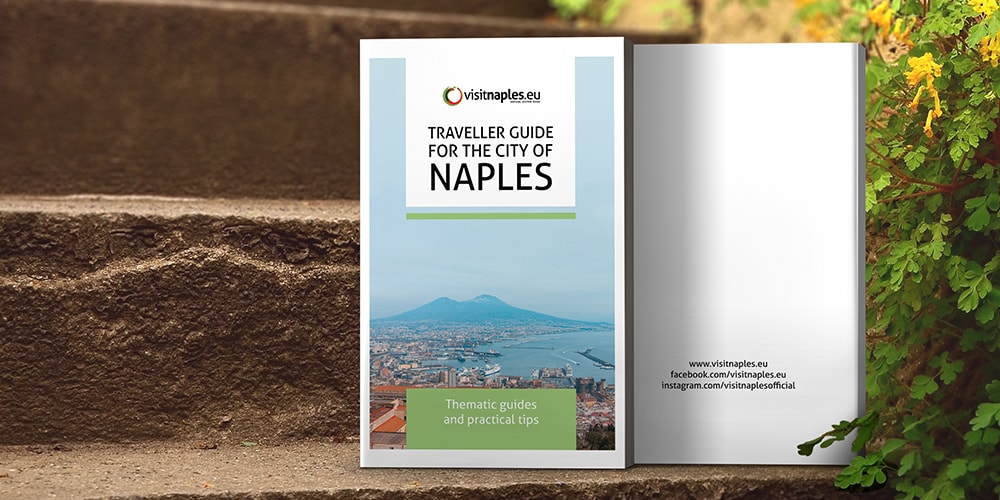Ancient Neapolitan proverbs about weather and time
One of the purposes of 'culture' is to pass on the knowledge and traditions of the past. In ancient times, this task was carried out by books, and today, in the digital age, also by radio and television and the web, a veritable universal encyclopaedia. But there are some cultural forms that have been handed down mostly orally, from father to son, and only recently have they been, at least in part, codified and collected in written form. We refer to the ancient use of proverbs, whose origin often dates back to the mists of time, and which change form and meaning from region to region and from city to city. An expression of popular wisdom, proverbs often represent authentic maxims of life, incontrovertible existential sentences that often find absolute confirmation in everyday life. It is therefore normal that the cultural tradition of a city like Naples, which has made the sacred and auratic voice of its people its greatest greatness, should hand down hundreds of sayings and adages, a living and fertile expression of its rich dialect.
We have decided, therefore, to tell you about some Neapolitan proverbs "with a meteorological theme": after all, as an old Neapolitan proverb says, Stamm sott 'o cielo (We are under the sky), and so it is no wonder that in some of the most important sayings it is atmospheric phenomena that are the "metaphorical protagonists".
Storm, rain and snow: three proverbs on friendship and solidarity
It may seem paradoxical for a city like Naples, famous throughout the world for its beautiful climate and radiant sunshine, but most Neapolitan weather tales have rain and the like as their protagonists, perhaps because, as bad weather is a rare and often sudden event, it lends itself more easily to being used metaphorically. Let us analyse some of the most important ones, which offer us the starting point for some reflections on human behaviour. For example, 'Ntiempo 'e tempesta, ogne pertuso è puorte', which means that during a storm, every small ravine can become a port, meaning that when one finds oneself in difficulty in one's own existence, even the smallest connection, such as the friendship of a person, can become useful or even indispensable. A proverb that today seems more appropriate than ever for what we are experiencing due to the Covid-19 emergency. Completely mirroring this proverb, however, is the saying L'amico è comme 'o 'mbrello: quanno chiove nun t' 'o truove maje, A friend is like an umbrella when it rains, you can never find one, which denounces with cynical frankness the selfishness of many fake friends who seem to disappear into thin air at the very moment of need. Also very significant is the expression, A neve dint' 'a sacca, which refers to those people who always seem to be in a hurry, as if they had to rush home to keep some 'snow' in their pockets, which would suddenly melt on contact with the hot climate of Naples. A proverb that denounces the less than human behaviour of some people, who seem to want to preserve their cold temperament and their closure towards others, which is certainly not tolerable for a warm and welcoming people like the Neapolitans.
The paradoxes of May: two Neapolitan proverbs on wisdom
Another interesting variation on the theme concerns two proverbs centred on the month of May, which address the issue of bad weather in that month, which is certainly not very frequent, from two completely different angles. The first is Acqua 'è maggio, parole 'e sagge (Water in May, wise words), which warns us of the preciousness of wisdom, which is as rare as rain in that month, and O trenta 'e maggio ' a vecchia mettette 'o trapanaturo 'o ffuoco, On the thirtieth of May, an old woman set fire to a reel, an old spinning machine tool. This ancient proverb has two meanings: the first, of a purely meteorological nature, is an observation that we have all made in our daily experience, albeit rarely: even on that date, it can be so cold that we have to warm ourselves with a burning fire. The second, of a metaphorical nature, is a reminder that in life we must never take anything for granted, and even when life is as radiant as the weather in May, a sudden event could force us to "rekindle the fire as in winter", to deal with the sudden and unexpected difficulty.
The power of light: Neapolitan proverbs about love and optimism
As far as the 'other side of the atmospheric coin' is concerned, namely the fine weather and the beloved Neapolitan sunshine, here are two of the most important sayings. The first, known throughout Southern Italy in its various dialectal variations, is Nun c'è sabbato senza sole, nun c'è femmena senz'ammore. It is practically a hymn to women, because, according to the old adage, love dwells in the heart of each one of them, just as the sun always shines on Saturdays, a holiday traditionally dedicated precisely to the walks of fiancés and the courtship of young girls. The other adage, which concludes our roundup of Neapolitan proverbs, is San Biase 'o sole pe 'e case, which also has a double meaning: the first, more concrete, refers to the fact that on St Blaise's Day, February 3, the sun begins to warmly make its way into Neapolitan homes, a sort of anticipation of spring. But it is also a hymn to optimism, reminding us that "in the winters of our existence", in the darkest and most difficult moments, a glimmer of sunshine can rekindle within us the hope of improvement and change.










Lascia un commento